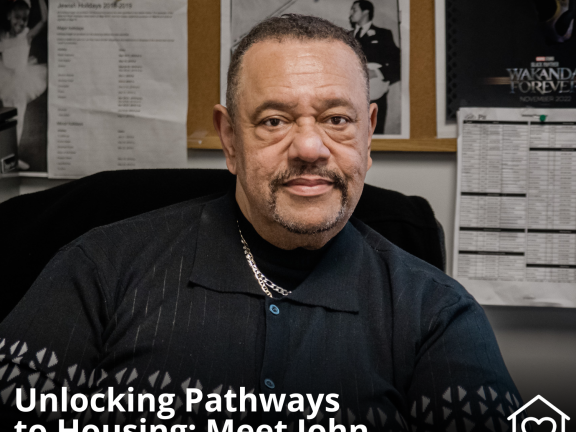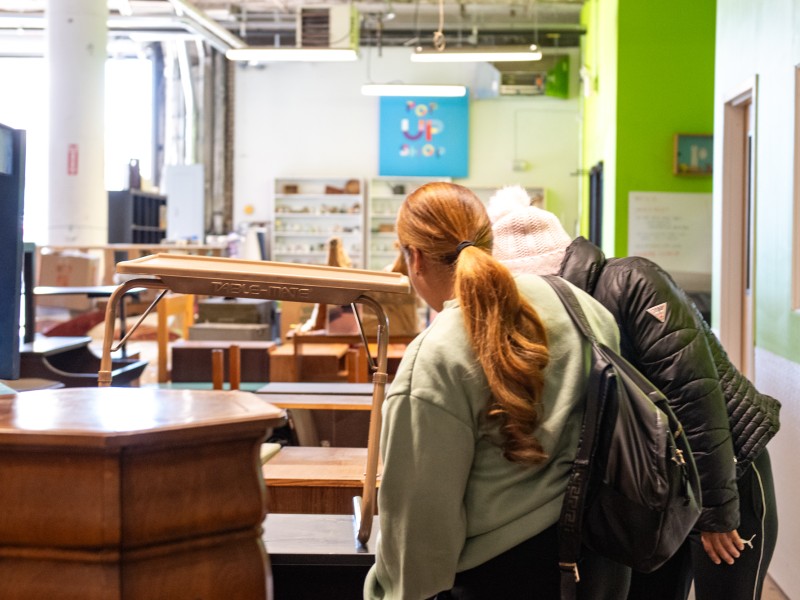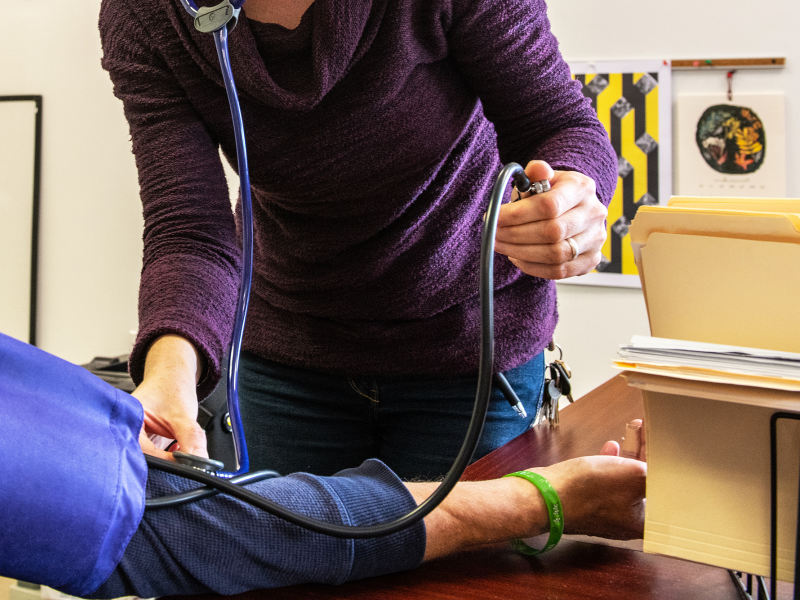Unlocking Pathways to Housing: Meet John

John Lambert, Director of Housing, has been with Pathways since the beginning: September 2008. Leading a team of eight, the Housing Department handles maintenance and leasing for over 550 Pathways participants. John was initially interested in the idea, but skeptical about how it would actually work. Fifteen years later he is still part of the team and now a firm believer in the Housing First model. John’s seen the successes and the impact on the staff and participants alike over his time at Pathways.
John recalls a turning point for him in the early days; there was one participant that he wasn’t sure would make it. “. . . he was the third person housed. And I said he won't make it a week. Well, guess what? We went on to create an Alumni Association in 2021 where we are now graduating people into [leasing with their own] vouchers, and I discharged him from my services because they are doing so well, they don't need our help anymore. It's just really fascinating how you would predict somebody couldn't make it. And he became the one that is sort of the poster child of Pathways to Housing PA. So that was very, I guess, awakening for me, when I saw that this program did have a lot of potential. And of course, now I'm a believer.”
The Housing First model is based on the belief that housing is a basic human right, rather than something people with mental illness must earn or prove they deserve by receiving treatment before they are eligible for housing. A fundamental principle is that participants should have a choice in the housing and services they receive, and that services should be geared toward supporting their recovery.
John describes our approach, “We have a unique situation in the sense that we do what we call something called master leasing, where Pathways to Housing PA is the tenant. With most leases it would be between you and your landlord. But when we do our leasing, Pathways is the tenant. And that gives us the freedom and liberty to be able to place people in and out as we need to. Because the lease doesn't end because someone is discharged or decides to leave the program, we could then get that unit ready and then go back in [with another participant]. Pathways has the freedom to move people in and out. It's unique how we've been able to maintain this over the past 15 years.”
Working with more than 550 participants, there’s been a lot of trial and error to figure out which participant is able to move into the next available unit. Part of that process is a bi-weekly vacancy meeting where the teams meet with Housing to discuss possible matches for the apartments. The process takes time, but it gives everyone a fair chance. Maintaining the units is also important and John has weekly meetings where he can brainstorm with team leads and his staff to keep the participant housed and maintain the relationship with our landlords.
Another unique facet of our work is that we do a lot of the maintenance work on the units ourselves. We have an internal ticketing system for issues with units, and Housing works together to prioritize and complete as much work in-house as possible. It’s a benefit to our landlords, that we can address minor issues ourselves, and a benefit to participants who will receive quick maintenance services from familiar faces. This process allows us to build stronger relationships with landlords, who may initially have reservations working with a population like ours.
John notes that it's not just a tenant landlord relationship, it’s a buy-in to the work we do. “I tell them that our desire is to be able to make them partners. I'm asking you to buy into our mission to get people off the street, be able to deal with stamping out homelessness, and that you're going to become a part of that.”


